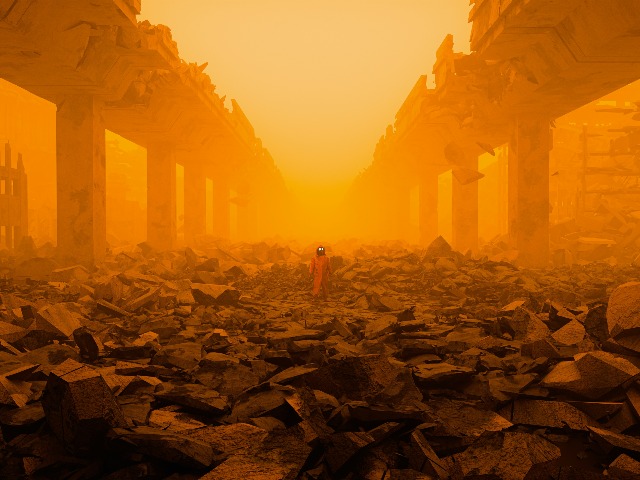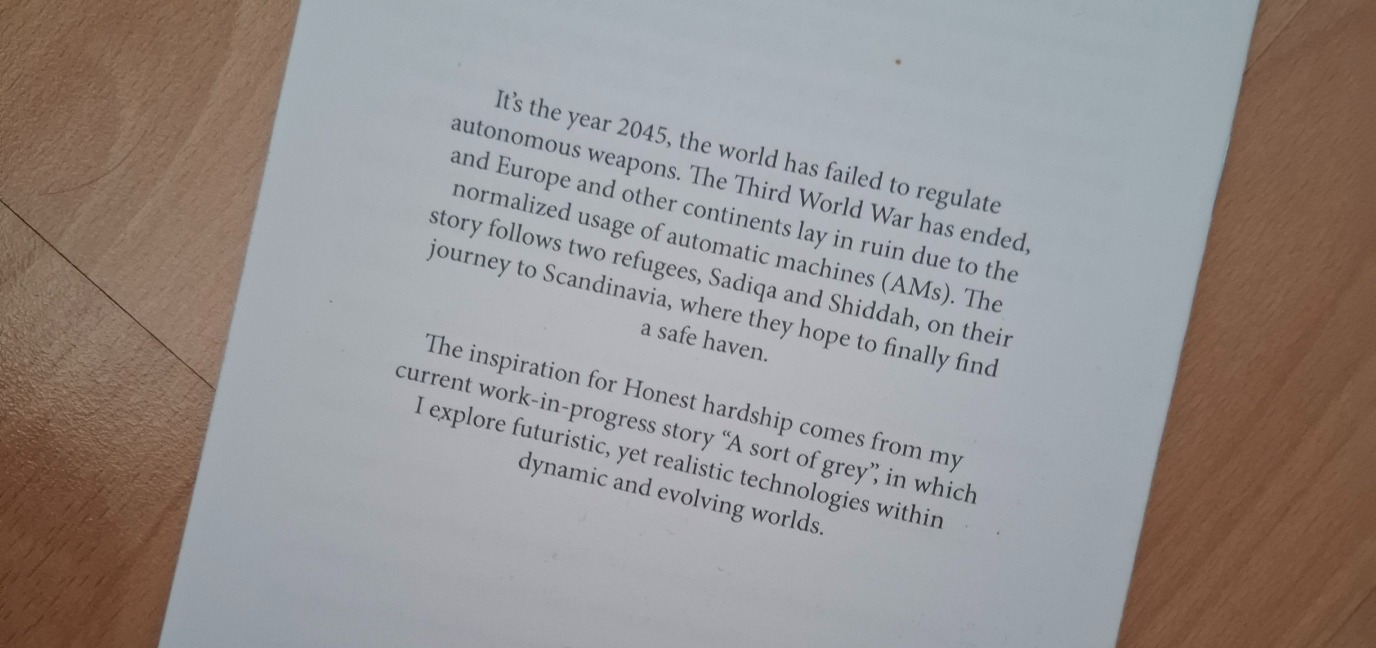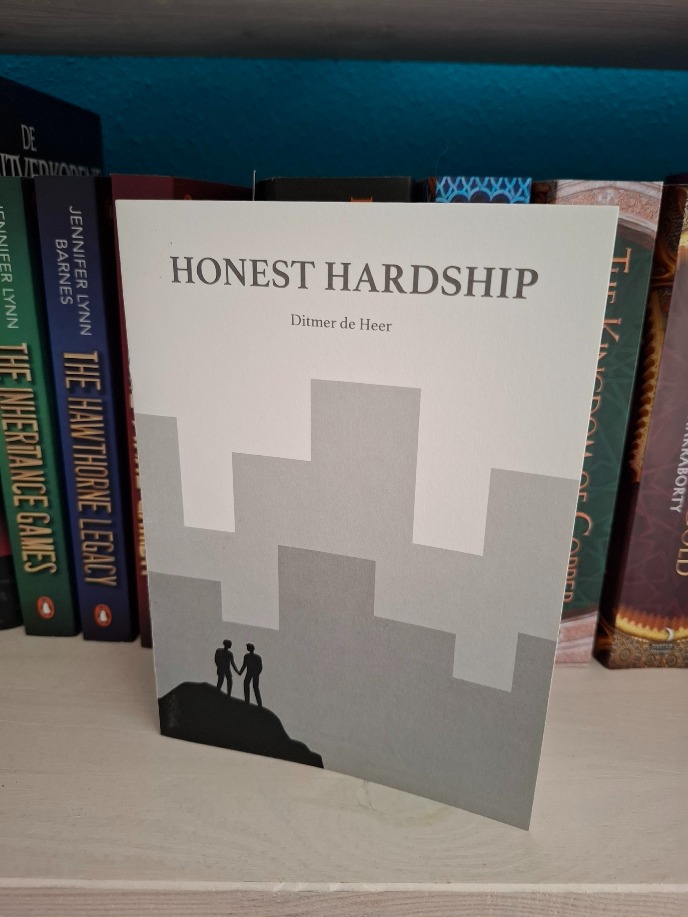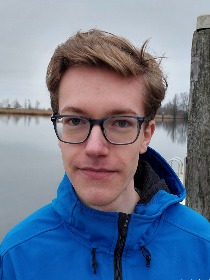Honest Hardship: Ditmer's Award-Winning Short Dystopian Story Set in 2045

What might the future look like if autonomous weapons were, or were not, properly regulated? Ditmer de Heer, a second-year student in the Data Science & Society programme, explored this question in a short story that went on to win a Youth Art Contest. His piece imagines a future where machines take over and human dignity is pushed aside.
In this post, you can read Ditmer’s story and hear more about his experience taking part in the competition and developing the project.
Ditmer’s 1,000-word story is right here: dive in! Once you’re done, head over to the interview, or read the interview first and then the story. No rules here: they go great together either way!
To start off, could you please introduce yourself and your academic background?
Yes of course. I am Ditmer de Heer and I am a second year Data Science & Society student. Furthermore, I write stories and work at a bookshop.
Can you tell us what the Youth Art Contest was about?
So, the Youth Art Contest was organized by an organization called ‘Stop Killer Robots’ that, as the name might already give away, advocates to stop the usage of AI-systems in the weapon industry.
The theme of the contest was Future 2045, with the goal to either imagine a world in which autonomous weapons are regulated or a world in which the consequences of failing to regulate those weapons are showcased. Without spoiling too much about the story, I choose for the latter.

How did you first hear about the contest, and what made you decide to participate?
I heard about the contest through one of my lecturers, Taís Blauth. She already knew that I write stories with a societal topic woven into them and thus she shared the competition with me. Since I was, and still am, working on a world set into the future in which I try to cover the concept of morality in combination with new and upcoming technologies, this competition was the perfect chance for me to share some of my ideas with the world.
What was the structure or format of the contest?
You could submit any sort of artwork in three different categories: Text, sound or image/video. The only requirements were that the artwork should portray your vision of 2045, either with or without autonomous weapon regulation, and a limit on how long your text or song or video could be. The text category had a limit of 1000 words, I am not sure about the other categories though.
What was your project or idea that won the contest?
I obviously chose for the text category as a writer, and I wrote a short story called Honest Hardship. The story follows Shiddah and Sadiqa, two refugees from Marocco as they try to reach Scandinavia to get a better life. This in a Europe that failed to regulate autonomous weapons and has become an apocalyptic wasteland where those weapons look for remaining humans following an escalated war. The main message I tried to convey was that if we do not act, society loses part of its humanity.

How did the idea come to you?
Well, as I mentioned earlier, I am already working on a story set into the future so I already had a baseline for the world in which the story would take place. As for the specific storyline, I wanted to add a topic that has always been a morale debate, which in the end became immigration. Once I came up with that, the story started to unfold itself in my mind automatically.
What tools, techniques, or data did you use in your work?
When I write a fictional story that is set on earth, I always try to be as accurate as possible. Meaning that places, buildings and historic events must be correctly described. For this story I used Google Maps, Streetview more specifically, and I also researched Moroccan culture to create the characters of Shiddah and Sadiqa.
What was the biggest challenge you faced while working on this project?
The biggest challenge was condensing the story I wanted to tell into less than thousand words. I had to introduce the world, the characters, the background, the workings of autonomous weapons, while also telling the story I wanted to tell. Every single sentence and word I chose needed to have a purpose. The most difficult decision were the names of the characters; they had to carry meaning. In the end I chose Shiddah and Sadiqa because if you put the names after each other, they literally mean ‘honest hardship’.

How did it feel to find out you had won?
I was absolutely thrilled; I had not expected to win the competition since it was international so there were many people that could sent their artwork. I think that winning the competition with Honest Hardship gave me even more confidence in the story I am working on since the short story is set in the same world.
Any takeaways from this experience?
The main takeaway would be that sometimes you just have to take a leap, even if you are not fully sure if what you are doing will be successful or not. Because in the end what matters is that you contributed to something that you believe in.
Join the programme and be next in line for an inspiring opportunity!
Visit our BSc Data Science & Society webpage and sign up for our monthly newsletter. See you there!
About the author

Ditmer de Heer is a student of the BSc Data Science & Society at Campus Fryslân, University of Groningen.

